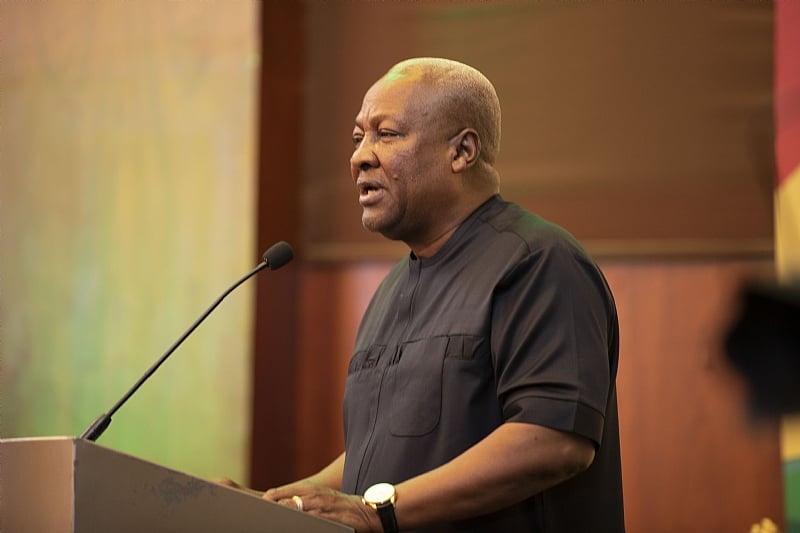President John Dramani Mahama’s address regarding the recent depreciation of the Ghanaian cedi seeks to allay public concerns by framing the currency’s decline as a necessary corrective measure towards long-term stability. He argues that the cedi’s prior rapid appreciation artificially inflated imports, as businesses could acquire dollars at cheaper rates, leading to an influx of foreign goods. Conversely, this appreciation negatively impacted exporters, who received fewer cedis for their dollar-denominated earnings. The current depreciation, therefore, is presented as a natural market adjustment that will eventually create a more balanced trading environment beneficial to both importers and exporters. The President emphasized that this correction will lead to a sustainable exchange rate, promoting overall economic health.
A key factor contributing to the cedi’s depreciation, according to President Mahama, is a significant 50% decline in remittances. Remittances, which represent money sent home by Ghanaians living abroad, typically bolster the country’s foreign currency reserves and support the cedi’s value. This substantial drop in inflows has exerted downward pressure on the currency. The President did not elaborate on the specific reasons for this decline, leaving room for speculation about potential contributing factors such as global economic downturns, changes in migration patterns, or alternative investment opportunities for the diaspora. However, he expressed confidence that the cedi’s adjustment will ultimately lead to stabilization.
President Mahama outlined the government’s objective of maintaining the cedi’s annual depreciation within a manageable 5% range. This target suggests a strategic approach to managing the exchange rate, aiming to avoid drastic fluctuations that could disrupt economic activity. Achieving this goal likely requires a combination of monetary policy interventions, fiscal discipline, and measures to boost export competitiveness. The President’s emphasis on a controlled depreciation indicates a desire to avoid the negative consequences often associated with rapid currency devaluation, such as inflationary pressures and increased import costs.
Furthermore, the President’s appeal to Ghanaian patriotism underscores the perceived importance of public support in navigating the currency challenges. He called on citizens to safeguard the local currency, likely suggesting a collective effort to prioritize domestic production, reduce reliance on imports, and promote the use of the cedi in local transactions. This appeal to national sentiment aims to foster a sense of shared responsibility for economic stability and to encourage individual actions that contribute to a stronger currency. The success of such an appeal, however, depends on public trust in the government’s economic management and a clear understanding of the benefits of supporting the local currency.
The provided data point indicating the cedi trading at GH¢15.1244 to the US dollar on January 13, 2025, provides a snapshot of the currency’s value at a specific moment in time. This information, however, does not reflect the trajectory of the cedi’s depreciation or its historical performance. A more comprehensive analysis would require examining exchange rate trends over a longer period to assess the severity and pace of the depreciation. Furthermore, comparing the Ghana cedi’s performance against other currencies in the region and globally would provide a broader context for understanding its relative strength and volatility.
In summary, President Mahama’s address presents the cedi’s depreciation as a necessary adjustment towards long-term stability, counteracting the negative impacts of prior rapid appreciation on importers and exporters. He highlights the significant role of declining remittances in the current situation and outlines the government’s target of managing depreciation within a 5% annual range. The call for national patriotism underscores the importance of collective efforts in supporting the local currency. While the President expresses optimism about the cedi’s eventual stabilization, a comprehensive assessment of the currency’s performance requires a more in-depth analysis of historical trends and comparative data. The success of the government’s strategy will ultimately depend on effective policy implementation, public confidence, and favorable global economic conditions.














